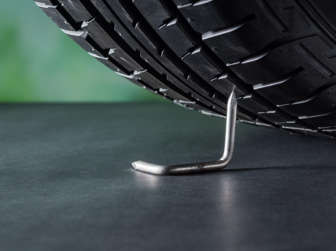Reasons Why Car Maintenance Is Essential to a Smoother Ride and Fuller Tank
A well-structured car maintenance schedule is your best line of defence for keeping your vehicle running efficiently for years. By consistently following a plan that tracks essential upkeep—such as oil changes, brake inspections, and tire rotations—you reduce the risk of sudden breakdowns, costly repairs, and poor fuel efficiency. A proactive approach also allows you to catch small issues before they become major problems, ensuring that all critical systems are functioning optimally. Regular tasks like changing oil and replacing air filters not only protect your engine but also contribute to a smoother, more economical driving experience.
How Often Car Maintenance is Needed
When thinking about how often car maintenance should take place, the answer depends on several factors: your car’s age, how much you drive, and the conditions you drive in. Generally, it’s a good idea to follow the manufacturer’s recommendations found in your owner’s manual, which offers a specific timeline for things like oil changes, tire rotations, and brake inspections.
For instance, most vehicles require an oil change every 10,000 to 20,000 kilometers, depending on whether you have an older vehicle or modern mainstream vehicle (including service intervals). If you drive frequently in heavy traffic, on rough terrain, or in extreme weather conditions, your car might require more frequent maintenance.
Some key maintenance tasks, like changing the air filter and checking fluid levels, should be done every three to four months, while others, such as brake pad replacements, should be checked regularly for signs of wear or (at the very least) inspected a few months before any major road trips. For the most part, replacements an/r repairs really depend on your driving habits and how much strain you put on your vehicle.
The key takeaway here is consistency. Regular check-ups ensure that your vehicle is running as efficiently as possible, saving you time, money, and frustration.
The Impact of Regular Maintenance on Fuel Efficiency
One of the most significant benefits of regular car maintenance is its direct impact on fuel consumption. Over time, small issues such as dirty air filters, low tire pressure, and old spark plugs can cause your car to burn more fuel than necessary. In fact, some studies suggest that proper maintenance can improve fuel efficiency by as much as 10%. That means less money spent on petrol and more time spent enjoying the ride.
Here are some of the specific ways that a vehicle Maintenance Plan can lead to a fuller tank:
- Tyre Pressure and Tyre Maintenance: Tyres that are underinflated create more rolling resistance, meaning the engine has to work harder to maintain speed. This extra effort chugs fuel. Regularly checking and maintaining tire pressure (along with rotating the tires every 10,000 kilometers) ensures that your tires wear evenly and maintain proper contact with the road, saving on petrol in the long run.
- Air Filters: Over time, air filters can become clogged with dirt and debris. This reduces the airflow to the engine, forcing it to work harder and use more fuel. Replacing a clogged air filter regularly can improve fuel consumption and prevent engine strain.
- Spark Plugs: Worn or dirty spark plugs can lead to misfires and poor engine performance, making your car burn more fuel than it should. By replacing spark plugs regularly as part of your maintenance plan, you’ll help your engine run smoother and more efficiently, getting the most out of every tank.
- Oil Changes: Regular oil changes are essential for keeping your engine running smoothly. Over time, oil breaks down and loses its ability to lubricate the engine effectively. This extra friction forces the engine to work harder to maintain its usual performance, which means it uses more energy — and, in turn, burns more fuel. Fresh oil minimises friction, allowing your car to operate with less strain and use less fuel.
A Vehicle Maintenance Plan Helps Avoid Costly Repairs
While regular maintenance helps improve fuel efficiency, it also prevents costly repairs that are preventable. For example, failing to address small issues, like a small oil leak, can lead to more serious engine damage. A timely brake inspection or replacing worn-out tires can prevent accidents and injuries, saving you both money and potential liability.
Regular inspections can also help spot rust or corrosion before it affects critical systems, saving you from more extensive (and expensive) repairs. The cost of vehicle Maintenance Plans might seem high upfront, but in the long run, these small investments save you from much larger expenses, not to mention the peace of mind that comes with knowing your car is in top condition.
How Car Maintenance Improves Comfort
Car maintenance is not just about saving money—it’s also about enhancing your comfort on the road. Imagine driving through a smooth, quiet ride with responsive brakes, steady acceleration, and clear visibility. All these factors depend on the basics of regular maintenance.
For example, regular brake inspections ensure that your braking system is responsive and effective. Without proper brake maintenance, you risk facing longer stopping distances and uneven braking, which can be both uncomfortable and dangerous. Similarly, maintaining your car’s suspension helps prevent excessive vibrations and bumps while driving.
Car maintenance also plays a role in cabin comfort. Replacing air filters and cleaning the HVAC system ensures proper airflow, keeping the cabin fresh and free from allergens. Regularly cleaning the windows and checking the wiper blades ensure clear visibility during rainy weather, improving both safety and comfort.
Conclusion: Stick to a Maintenance Plan for a Smoother Ride and Fuller Tank
By understanding how often car maintenance should be done and why it’s essential, you can ensure that your car performs at its best, stays on the road longer, and saves you money in the long run. Regular maintenance may seem like a small investment, but it pays off with improved performance, safety, and cost savings, making it a must for every car owner.
So, take a proactive approach, stick to your plan, and enjoy a smoother ride and a fuller tank every time you hit the road.
Introducing the All-New VW Golf 8.5 TSI
Meet the Latest Mini Cooper: Features & Specs


